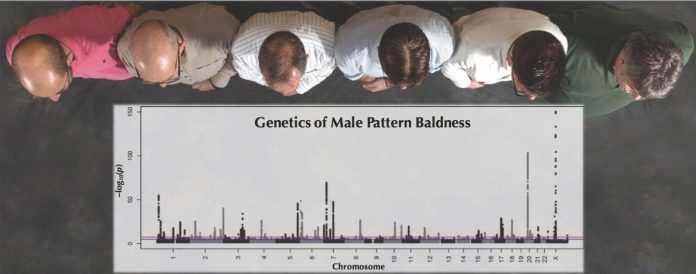
Researchers at The University of Edinburgh present new findings that could allow scientists to make better predictions as to who may go bald. While previous work on male pattern baldness had uncovered a handful of genes related to the condition, in the current work, investigators identified more than 200 genetic regions associated with the condition. The findings from this study were published recently in PLOS Genetics through an article entitled “Genetic prediction of male pattern baldness.”
“We identified hundreds of new genetic signals,” explained co-lead study investigator Saskia Hagenaars, a doctoral candidate at The University of Edinburgh's Centre for Cognitive Ageing and Cognitive Epidemiology. “It was interesting to find that many of the genetics signals for male pattern baldness came from the X chromosome, which men inherit from their mothers.”
The University of Edinburgh scientists examined genomic and health data from over 52,000 male participants (aged 40–69 years) of the U.K. Biobank, performing a genome-wide association study of baldness—pinpointing 287 genetic regions linked to the condition. The researchers created a formula to try and predict the chance that a person will go bald, based on the presence or absence of certain genetic markers. Though accurate predictions for an individual are still some way off, the results can help to identify subgroups of the population for which the risk of hair loss is much higher.
“In this study, data were collected on hair loss pattern, but not age of onset,” noted co-lead study author David Hill, Ph.D., a statistical geneticist at The University of Edinburgh's Centre for Cognitive Ageing and Cognitive Epidemiology. “We would expect to see an even stronger genetic signal if we were able to identify those with early-onset hair loss.”
The study is the largest genetic analysis of male pattern baldness to date. Many of the identified genes are related to hair structure and development, which could provide possible targets for drug development to treat baldness or related conditions.
“We are still a long way from making an accurate prediction for an individual's hair loss pattern,” concluded senior study investigator Riccardo Marioni, Ph.D., a fellow at The University of Edinburgh's Centre for Genomic and Experimental Medicine. “However, these results take us one step closer. The findings pave the way for an improved understanding of the genetic causes of hair loss.”











